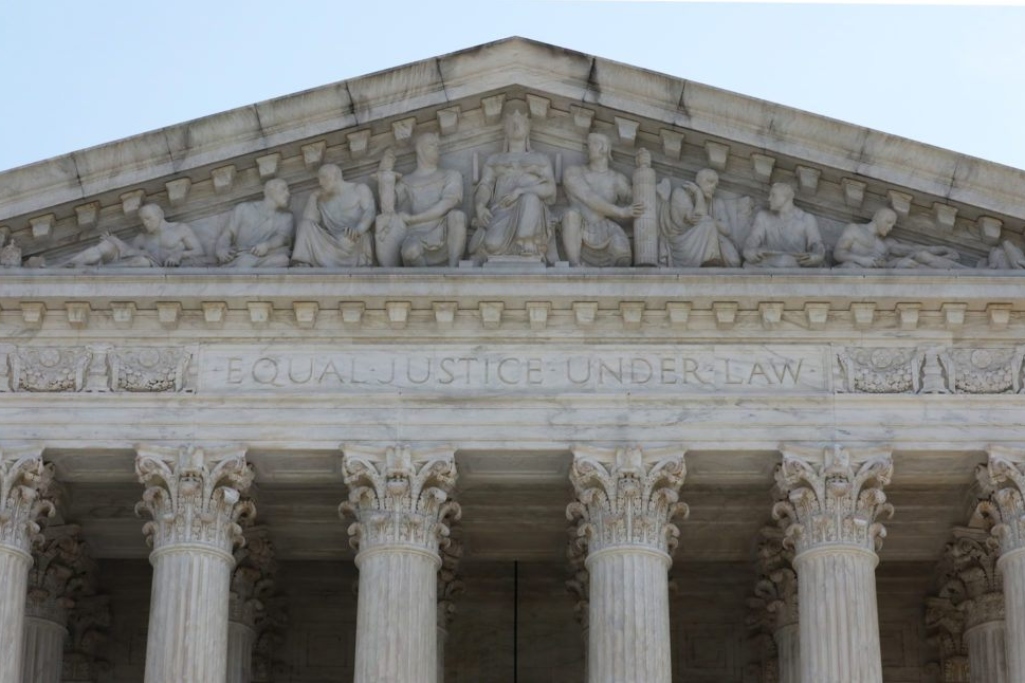
The U.S. Supreme Court.
WASHINGTON (BP) — On any given day in Montgomery County, Md., public pre-K or elementary classrooms, students might encounter books promoting storylines that gender is more a construct than a biological fact.
U.S. Supreme Court justices grilled attorneys over practical applications and the common sense of what would happen if the school system allowed parents to opt their kids out of class when such books are read, just as parents are allowed to opt their kids out of physical education class.
Southern Baptist Ethics and Religious Liberty Commission (ERLC) President Brent Leatherwood believes the justices are skeptical of the school board’s reasoning.
“It was clear during the oral arguments the court’s conservative wing was highly skeptical of Montgomery County’s claim that the gender ideology books are mere exposure to different ideas, not coercive instruction that burdens traditional religious beliefs,” Leatherwood told Baptist Press (BP).
“Our brief before the court in the case makes the same arguments,” Leatherwood said. “We should pray that a clear majority unambiguously rules for these parents and allows them the simple right to protect their children from this material without forcing them out of public schools.”
ERLC is among 10 faith groups siding with the parents in an amicus brief submitted to SCOTUS in March.
In the hearing spanning more than two hours, several conservative justices — including Neil Gorsuch, Samuel Alito and Clarence Thomas — centered their questions on discrimination, morality, ease of the accommodation and other issues.
Liberal justices — including Ketanji Brown Jackson and Sonia Sotomeyer — focused on other options and considerations including the checks and balances in place at the local level to remove unwanted books, whether local education issues should be left to local communities and whether the reading of books necessarily indoctrinates young minds or coerces them to believe.
In the case of the children’s book, “Uncle Bobby’s Wedding,” Sotomeyer questioned the parents’ specific objections. In the book’s narrative, Bobby’s niece is confused by her uncle’s marriage to a man, but her mother “corrects” her.
“Is looking at the pictures — is there any affidavit from any parent that merely looking at people getting married, holding hands — none of them are even kissing in any of these books; the most they’re doing is holding hands — that mere exposure to that is coercion?” Sotomeyer asks of Eric Baxter, Becket vice president and senior counsel, the parents’ attorney.
But Alito spotlights a different concern with the book: “The book has a clear message, and a lot of people think it’s a good message, and maybe it is a good message, but it’s a message that a lot of people who hold onto traditional religious beliefs don’t agree with.”
The storybook material contradicts their sincere religious beliefs and practices and burdens their freedom to practice their religion by sharing their faith with their children, the parents assert in their lawsuit filed by Becket. The Free Exercise Clause of the U.S. Constitution entitles the parents to the accommodations they seek, the lawsuit claims.
“Schools are for education — not indoctrination. That is the central premise behind today’s oral arguments on behalf of parents fighting against the extreme efforts of a Maryland school district,” Leatherwood said. “The case before the court is a straightforward one. Parents, as the primary stewards of their children, have a right to shield their children from radical gender ideology material that burdens their religious exercise.
“Montgomery County has told teachers to read books that reprimand children and families for holding biblical beliefs on gender and marriage in classrooms with kids as young as three. This is abhorrently wrong,” Leatherwood said. “Yet, the parents in this case are making a simple request: the ability to opt-out their children the way they can in a variety of other contexts in Montgomery County. Yet the district would not make this basic accommodation. Now it finds itself before the nation’s highest court.”
Messengers to the 2024 Southern Baptist Convention (SBC) annual meeting affirmed their beliefs in a Bible-based parental rights in the resolution “On the God-Given Rights and Responsibilities of Parents.”
Messengers called on the government to “enact legislation that protects and upholds parental rights, ensuring that parents have the freedom to make decisions regarding the upbringing, education, and healthcare of their children without undue interference, recognizing that parents are the primary arbiters of a child’s moral and spiritual formation,” among other things.
The school board has said allowing parents to opt out became too burdensome, and that discontinuing the practice was not a violation of the parents’ religious freedom. The argument prevailed in two lower courts.
The Church of Jesus Christ of Latter-day Saints, the U.S. Conference of Catholic Bishops, the Lutheran Church-Missouri Synod, the General Conference of Seventh-day Adventists, the Anglican Church in North America, the Orthodox Church in America, the Diocese of Eastern America of the Serbian Orthodox Church, the Coalition for Jewish Values and the Jewish Coalition for Religious Liberty join ERLC on the brief.
Also supporting the parents in amicus briefs are U.S. Acting Solicitor General Sarah M. Harris, attorneys general from 26 states, 66 members of Congress, 35 members of the Maryland Legislature, as well as legal scholars, historians and others.
The case began after the Montgomery County School Board introduced a new curriculum in 2022 that includes more than 20 new inclusivity books the school board has said are aimed at inclusion for pre-K through eighth grade students.
The opt out option was discontinued a year later, leading the coalition of Christian, Muslim and Jewish parents to file the lawsuit, Mahmoud v. Taylor.
The Supreme Court is expected to rule in the case by June.
(EDITOR’S NOTE — Diana Chandler is Baptist Press’ senior writer.)

